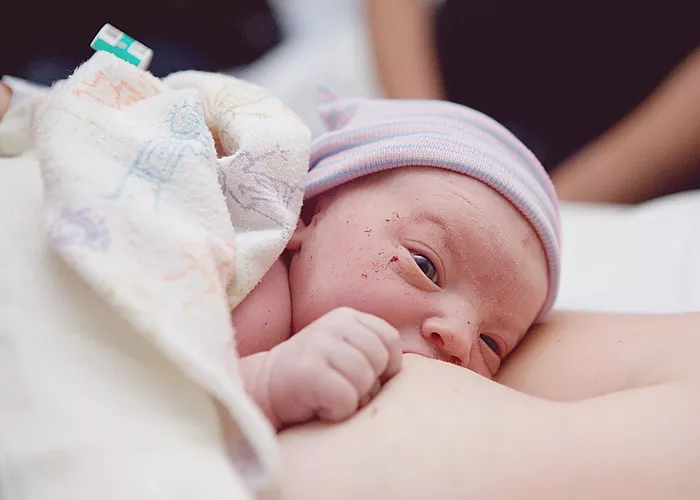The American Academy of Pediatrics (AAP) has announced a significant policy change, now permitting women with HIV to breastfeed if they are on medication that suppresses the virus.
This new guidance replaces the longstanding recommendation from the 1980s, established at the onset of the HIV epidemic. Dr. Lisa Abuogi, a pediatric HIV expert from the University of Colorado and the lead author of the report, explained that current medications can reduce the risk of transmitting HIV through breast milk to less than one percent.
“The medications are so effective now, and the benefits for both mother and baby are so significant, that we need to engage in shared decision-making,” said Abuogi.
These medications, known as antiretroviral therapy, do not entirely eliminate the risk of HIV transmission through breast milk. The only guaranteed way to prevent transmission is to avoid breastfeeding altogether, Abuogi noted. Additionally, breastfeeding should be exclusive for the first six months, as mixing breast milk with formula can disrupt an infant’s digestion, potentially increasing the risk of HIV infection.
Approximately 5,000 HIV-positive women give birth annually in the U.S., with nearly all taking medication to keep the virus at very low levels. However, viral levels can rise if the medication is not consistently taken. Widespread availability of these medications began about a decade ago. Before then, around 30 percent of mother-to-child HIV transmissions occurred during breastfeeding, according to Dr. Lynne Mofenson of the Elizabeth Glaser Pediatric AIDS Foundation. In the early 1990s, about 2,000 infants in the U.S. were infected each year; today, that number is fewer than 30.
The AAP’s updated policy follows changes made more than a year ago by the National Institutes of Health (NIH) and the Centers for Disease Control and Prevention (CDC). These agencies now advise that individuals with viral suppression should be informed of their breastfeeding options. Health care providers are also advised not to report parents with HIV to child protective services if they choose to breastfeed.
Breastfeeding is known to provide optimal nutrition for infants and protect against various illnesses and conditions, such as obesity and type 2 diabetes. For mothers, nursing reduces the risk of breast and ovarian cancers, diabetes, and high blood pressure.
The World Health Organization (WHO) has recommended since 2010 that HIV-positive women in developing countries breastfeed while on antiretroviral therapy. This recommendation considers the risk of HIV transmission through breast milk against the dangers of malnutrition, diarrhea, and pneumonia, which are prevalent in areas where safe alternatives to breast milk are not available.
Dr. Lynn Yee from Northwestern University, who contributed to the NIH guidance, noted that experts in developed countries had previously recommended against breastfeeding due to the availability of safe water, formula, and human donor milk, which eliminate the risk of HIV transmission. This stance has been upsetting for many HIV-positive individuals who felt they were not given the choice to breastfeed.
Ci Ci Covin, a 36-year-old from Philadelphia, shared her experience of being denied the option to breastfeed her first child, leading to postpartum depression. With her second child, she successfully breastfed for seven months with medical support and medication to prevent transmission.
“Breast milk has everything in it that my baby would need,” Covin said. “That’s a beautiful thing.”
Dr. Abuogi emphasized that the AAP’s report offers crucial guidance for pediatricians, nurses, and breastfeeding specialists. She hopes the new recommendations will quickly expand breastfeeding among women being treated for HIV.
I’m Dan Novak.
Dan Novak adapted this story for VOA Learning English based on reporting by The Associated Press.


